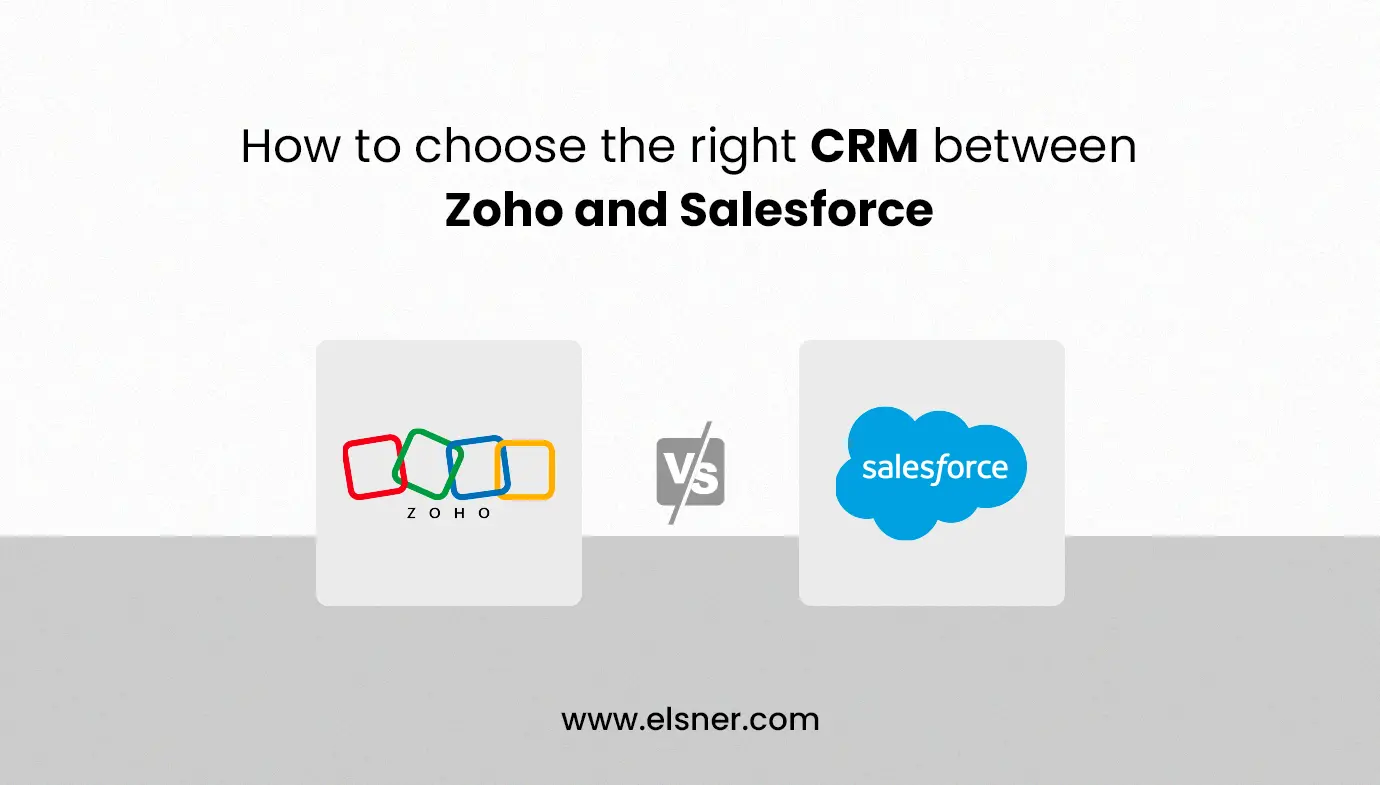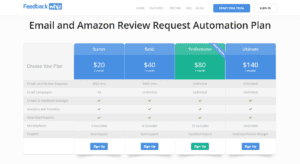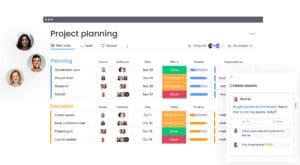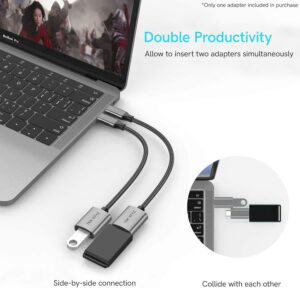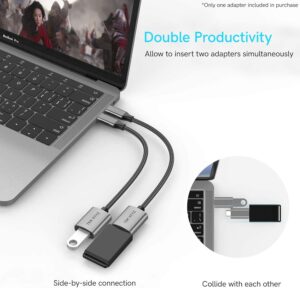Salesforce vs. Zoho: Choosing the Right CRM
In the world of customer relationship management (CRM), choosing the right platform can significantly impact your business’s efficiency and success. Salesforce and Zoho are two of the most popular CRM solutions on the market, each offering unique features and benefits. In this article, we’ll compare these two platforms across various dimensions, helping you determine which one best fits your business needs.
Overview of Salesforce and Zoho
Salesforce
Salesforce is a cloud-based CRM platform widely recognized for its comprehensive features and robust scalability. It is designed for businesses of all sizes, providing solutions that cater to sales, customer service, marketing automation, and analytics.
Key Features of Salesforce:
- Customizable dashboards and reports
- Extensive integration capabilities with third-party applications
- Advanced automation tools
- In-depth analytics and business intelligence features
Zoho
Zoho CRM is part of the larger Zoho Suite, offering a range of business applications. It is particularly well-known for its affordability and user-friendly interface, making it a great choice for small to medium-sized businesses.
Key Features of Zoho:
- Intuitive interface with drag-and-drop functionalities
- Email marketing integration and automation
- Affordable pricing plans with extensive features
- Comprehensive customer support options
Comparison Criteria
When evaluating Salesforce and Zoho, consider the following factors:
1. Pricing
Salesforce: Salesforce pricing can be on the higher end, especially for small businesses. Plans start at around $25 per user per month and can go up significantly based on additional features and functionalities.
Zoho: Zoho is known for its competitive pricing. Plans start as low as $12 per user per month, making it an attractive option for businesses with budget constraints.
2. User Interface
Salesforce: While Salesforce provides a rich feature set, its interface can be overwhelming for new users. It may require additional training to fully utilize its capabilities.
Zoho: Zoho’s user interface is more straightforward and intuitive, making it easier for users to get accustomed to the system without extensive training.
3. Customization
Salesforce: Salesforce excels in customization options. Businesses can tailor nearly every aspect of the platform, from dashboards to workflows, making it suitable for complex organizational needs.
Zoho: Zoho also offers customization, but it may not be as extensive as Salesforce. However, it provides enough flexibility for most small to medium-sized businesses to create a system that works for them.
4. Integrations
Salesforce: Salesforce boasts an extensive app marketplace, allowing seamless integration with thousands of third-party applications, including marketing tools, accounting software, and more.
Zoho: Zoho offers integrations with various applications but on a smaller scale compared to Salesforce. It does, however, integrate smoothly with other Zoho products, creating a cohesive ecosystem.
5. Support and Resources
Salesforce: Salesforce provides robust customer support options, including 24/7 assistance and an extensive knowledge base. However, higher-tier support may come with increased costs.
Zoho: Zoho offers excellent support options, including a help center, community forums, and ticket-based support. The availability of support is generally satisfactory for most users.
Which CRM is Right for You?
Salesforce is an excellent choice if:
- You are a larger organization with complex needs that require extensive customization and integration capabilities.
- You have the budget for a premium CRM solution.
- Your business relies heavily on data analytics and reporting for decision-making.
Zoho is a great fit if:
- You are a small to medium-sized business looking for an affordable CRM solution with essential features.
- You prefer a user-friendly interface that requires less training.
- Your business model benefits from a broader suite of integrated applications within the Zoho ecosystem.
Conclusion
Choosing between Salesforce and Zoho depends on your business size, budget, and specific needs. Salesforce offers powerful features and scalability for larger businesses, while Zoho provides a cost-effective, user-friendly option for smaller companies. By evaluating your requirements against the strengths of each platform, you can make a more informed decision that aligns with your business goals.
FAQs
What are the main differences between Salesforce and Zoho?
Salesforce is more customizable and robust, ideal for larger organizations, while Zoho is user-friendly and cost-effective, suited for small to medium-sized businesses.
Which CRM is more affordable?
Zoho is generally more affordable, with plans starting around $12 per user per month, compared to Salesforce’s starting price of $25 per user per month.
Can I integrate other apps with both CRMs?
Yes, both Salesforce and Zoho offer integration capabilities, but Salesforce has a wider range of third-party applications available.
Is training required to use Salesforce?
Due to its extensive features, some training may be necessary for Salesforce users to utilize the platform effectively.
Does Zoho offer customer support?
Yes, Zoho provides various support options, including a help center, community forums, and ticket-based support.
Top Tools to Simplify and Scale Your Business
- Salesforce: A comprehensive CRM platform with extensive customization, ideal for larger organizations seeking robust features.
- Zoho CRM: A cost-effective and user-friendly CRM that provides essential features for small to medium-sized businesses.
- HubSpot: A marketing and sales platform that offers CRM functionality along with inbound marketing tools.
- Pipedrive: A sales-focused CRM that provides pipeline management tools to help teams close deals effectively.
- ActiveCampaign: An email marketing and automation platform that integrates well with various CRM solutions for targeted campaigns.
Keywords: Salesforce, Zoho, CRM comparison, customer relationship management, small business CRM

